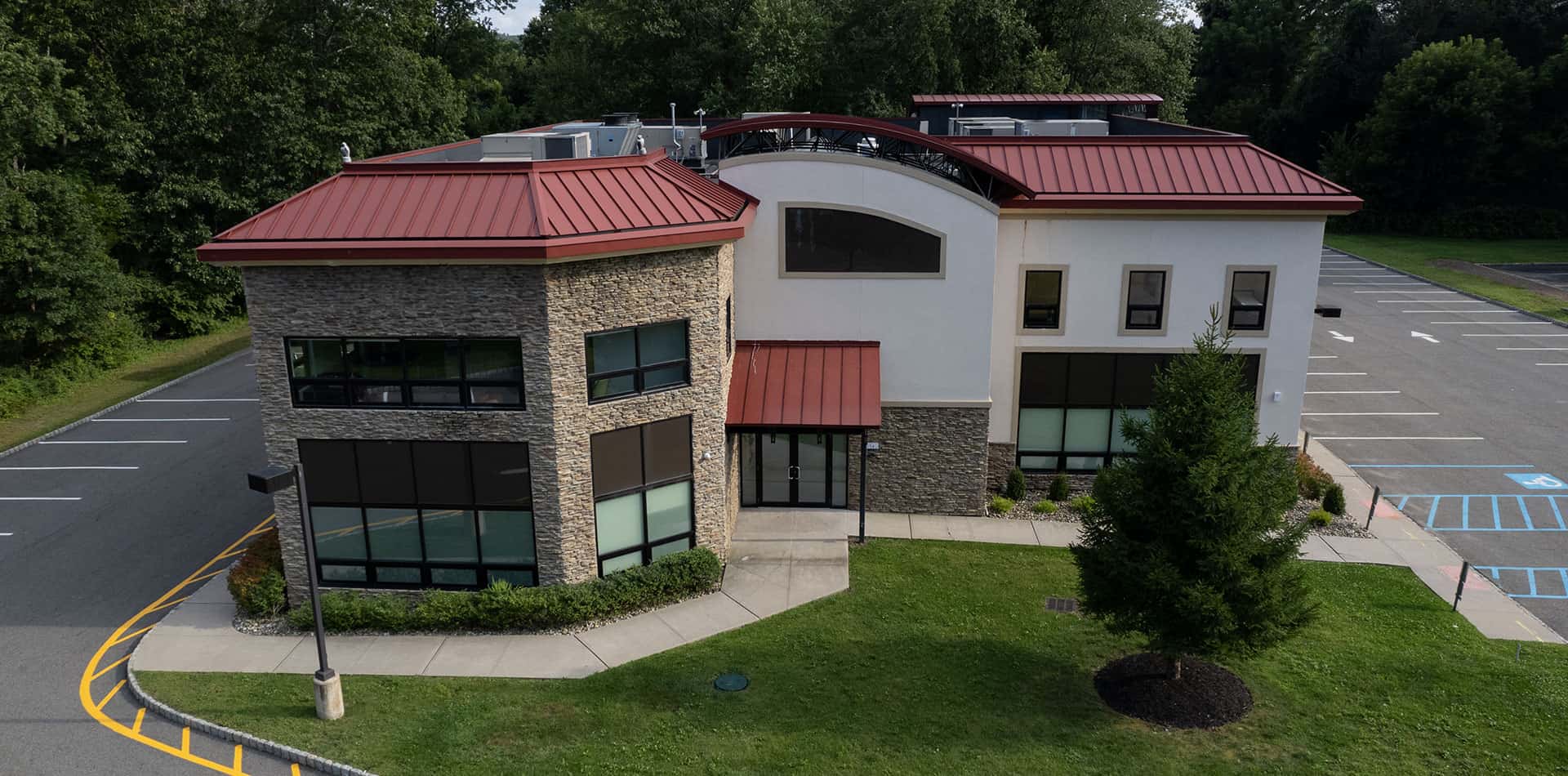Teen & Adolescent Substance Use Detox
We will give you the support and guidance you need to get started on the road of long-term recovery.
Teen & Adolescent Drug & Alcohol Addiction Medical Detox
For teens who have been impacted by substance use, deciding to live a healthy and substance-free lifestyle requires a combination of psychoeducation and compassionate, evidence-based care. The safest way for teens to begin their recovery journey is to attend an adolescent drug detox program.
At Guardian Recovery, we offer medical detox services for adolescents facing drug and alcohol withdrawal. We assist each client in achieving physical and mental stabilization in a medically supervised environment. Contact us today to get started on your road to recovery or to learn more about our adolescent drug and alcohol detox programs.
What Is Teen & Adolescent Medical Detox?
Adolescent and teen medical detox involves the removal of chemical substances from the body. When a teen who has been engaging in substance use cuts back or stops using entirely, withdrawal symptoms begin to develop. Medical detox helps teens manage and overcome the negative symptoms associated with withdrawal.
Drug and alcohol withdrawal can be uncomfortable and even dangerous if not completed under close medical supervision. For example, alcohol withdrawal can be life-threatening regardless of age, making the need for teen alcohol detox imperative. Potential symptoms include increased blood pressure, heart palpitations, and stroke. Attempting to undergo detox at home or in another unsupervised setting can lead to life-threatening complications. (1) For this reason, medical detox is one of the first steps in the drug and alcohol treatment process.
Get Local Help
Helpful, Recovery
Resources
- Our Approach
- Recovery Tips
- Frequently Asked Questions
- Insurance Check
- Ask a Question
Navigating the Challenges of Detoxification in Adolescents
Navigating the challenges of detoxification in adolescents requires a comprehensive and sensitive approach due to the unique physiological and psychological aspects of this age group. Adolescents undergoing detoxification face not only the physical hardships associated with substance withdrawal but also complex emotional and developmental issues. This delicate period demands an environment that ensures safety, understanding, and support.
It is crucial to integrate medical supervision to manage withdrawal symptoms effectively, alongside psychological support to address underlying issues such as peer pressure, family dynamics, and mental health disorders. Engaging in a holistic approach that includes family involvement, education about substance abuse, and the development of coping strategies is essential. Additionally, establishing a continuum of care that extends beyond detoxification is vital for promoting long-term recovery and addressing the specific needs of adolescents in this transformative stage of life.
Managing Withdrawal Symptoms in Medical Detox
Once a teen begins the detox process and eliminates their substance use, they will likely begin to experience withdrawal symptoms. Withdrawal symptoms occur due to the body readjusting to the absence of a frequently used substance. The severity of withdrawal symptoms depends on the type of substance used, the frequency of use, and the duration of use. (2) Depending on the severity, medication-assisted treatment or the use of certain medications to help reduce withdrawal symptoms may be utilized.
Common Teen Withdrawal Symptoms
The exact symptoms that a teen may experience during withdrawal can vary and depend on the substance used, how regularly they engage in its use and any underlying medical or mental health conditions. Withdrawal symptoms can be both physical and psychological.
Common withdrawal symptoms include: (3)
- Nausea
- Vomiting
- Anxiety
- Depression
- Insomnia
- Hot and cold flashes
- Muscle cramps
- Diarrhea
- Agitation and irritability
- Poor concentration and memory
- Muscle tension and aches
- Dehydration
- Tremors
- Increased blood pressure and heart rate
These are not all of the possible symptoms that can occur when experiencing withdrawal, and it is unlikely that a teen will experience all of the withdrawal symptoms at the same time.
Start Healing Today!
Choose recovery and take control of your life, it’s the path to a brighter future filled with health, happiness, and fulfillment.
Supervision & Monitoring in Teen Medical Detox
Supervision and 24/7 monitoring ensure a safe and effective detoxification process. Adolescents undergoing medical detox require constant oversight due to the unpredictable nature of withdrawal symptoms and the unique challenges they face. Medical professionals skilled in adolescent care provide round-the-clock monitoring, managing and alleviating withdrawal symptoms through appropriate medical interventions.
Our supervision extends beyond physical care, including emotional and psychological support to help teens navigate the complexities of detoxification. The environment is designed to be secure yet comforting, fostering a sense of safety and trust. Additionally, the detox process is often integrated with counseling sessions and educational programs, aiming to equip young clients with knowledge and coping mechanisms for post-detox life. This comprehensive approach ensures that the detoxification phase is not only medically sound but also supportive of the overall well-being and future recovery of the adolescent.
What Is the Detox Process for Teen Substance Use Disorder (SUD)?
The detox process begins with an in-depth review of each teen’s medical history. A team of medical professionals will speak with the teen and their family to gather vital information and determine their specific treatment needs. Throughout the process, each teen is provided with rest, medical treatment, quality nutrition, hydration, and regular updates by our medical staff.
Substances That Require Medical Detox
Substances that require medical detox include:
- Alcohol
- Benzodiazepines
- Opioids
Commonly Used Medications for Teen Substance Use Detox
A frequently used medication for the alcohol detox process is Librium. The medication calms the central nervous system, preventing more severe withdrawal symptoms from developing. (4) This medication has the same effect but is easier for the liver to process. To combat continued cravings and prevent relapse, we sometimes prescribe Antabuse (Disulfiram). This medication is intended to prevent the body from metabolizing alcohol and leading to the “drunk” feeling.
Opioid misuse can involve prescription opioids as well as illicit opioids, like heroin. Withdrawal symptoms from both types of opioids follow a similar pattern and require the same prescriptions. The two most commonly used medication-assisted prescriptions are Suboxone and Subutex. Both Suboxone and Subutex contain buprenorphine. Buprenorphine is an opioid partial agonist, which means that it satisfies the brain’s craving for an opioid and allows a person to avoid severe opioid withdrawal symptoms but does not produce a high. (5)
Another frequently used medication for opioid use disorder is Vivitrol. Vivitrol is intended to mitigate cravings associated with opioid misuse after the detox process has been completed.
Complimentary Insurance Check
Find Out Today!
"*" indicates required fields

Our Locations
Our Facilities & Teams Transform Lives
Changing lives by providing comprehensive support and rehabilitation, empowering individuals to overcome addiction and regain control of their health and well-being.
Adolescent Substance Use Detox & Co-Occurring Disorders
According to the National Institute on Drug Addiction (NIDA), individuals experiencing substance use disorders are twice as likely to experience a mental health disorder simultaneously. (6) Research has also found that approximately 60 percent of adolescents receiving substance use treatment meet the diagnostic criteria for a mental health disorder as well. (7) At Guardian Recovery, we offer dual diagnosis treatment for those experiencing co-occurring substance use and mental health disorders.
How Long Does it Take to Detox Adolescents from Substance Use?
The exact time that it takes for an adolescent to detox from a substance varies greatly. Typically, a medical detox program for teens can last anywhere between 3 to 4 days.
Factors that will determine the length of time that it takes a teen to detox from a substance include:
- What substance they have been using.
- How much of the substance they have been using.
- How long they have been engaging in substance use.
- The overall health of the teen.
What Is the Next Step After Detox for Adolescent Substance Use Treatment?
After medical detox, participants will transition to the next phase of their treatment process. In most cases, this means transitioning into an inpatient or outpatient program. Typically, these levels of clinical care include group therapy, one-on-one counseling sessions, and participation for the eventual transition back into independent living. These next vital steps will allow program participants to achieve mental, emotional, and spiritual well-being and physical health.
READY TO MAKE A CHANGE?
Your Next Steps
Our Approach to Teen & Adolescent Detox & Treatment
At Guardian Recovery, we take a comprehensive and compassionate approach to teen detox and substance use treatment. Our detox program offers comfort medications and comfort-based amenities to help make the process as comfortable as possible. Teens are provided with individual, group, and family therapy to help them develop the necessary tools to maintain long-term recovery.
Understanding that teenagers have distinct developmental, psychological, and emotional needs, our treatment plans are tailored to each individual. This personalized approach involves a blend of medical detox and therapeutic interventions designed to address the root causes of substance abuse.
We incorporate evidence-based therapies such as Cognitive Behavioral Therapy (CBT), family counseling, and educational programs to foster resilience and healthy coping mechanisms. Additionally, our focus extends to building life skills and providing support systems that empower teens to navigate future challenges successfully. Throughout this journey, we ensure continuous monitoring and support, creating a foundation for long-term recovery and well-being.
Frequently Asked Questions
Below is a list of frequently asked questions regarding our teen and adolescent substance use medical detox program.
The detox process will be different for each teen. Though many of the symptoms will be the same, there is a different detox process for each substance that has been used.
Highly trained professionals monitor the medical detox process. Each member of the medical detox staff specializes in ensuring the safety and well-being of each teen. Safety is the primary objective of adolescent detox. This will ensure that each program participant will have the best chance of long-term success in recovery.
The exact time that it takes for an adolescent to detox from a substance varies greatly. Typically, a medical detox program for teens can last between 3 to 7 days.
Our Simple Admissions Process
If you or someone you love is struggling with substance use, medically monitored detox may be a necessary first step on the road to recovery. At Guardian Recovery, we offer a comprehensive medical detox program for teens experiencing substance use disorders. Our national network of facilities are designed specifically to ensure the safety and proper treatment of each of our clients. Our highly trained medical and clinical staff will ensure that both your safety and recovery needs are met. Our goal is to ensure that you have all of the tools you need to achieve the life that you have always wanted. To begin your recovery journey or help your teen get the help they need to recover, contact Guardian Recovery today.
Sources
- https://www.ncbi.nlm.nih.gov/books/NBK310652/
- https://www.ncbi.nlm.nih.gov/books/NBK459239/
- https://www.ncbi.nlm.nih.gov/books/NBK310652/
- https://www.ncbi.nlm.nih.gov/pmc/articles/PMC4606320/
- https://www.samhsa.gov/medications-substance-use-disorders/medications-counseling-related-conditions/buprenorphine
- https://nida.nih.gov/publications/research-reports/common-comorbidities-substance-use-disorders/introduction
- https://nida.nih.gov/publications/research-reports/common-comorbidities-substance-use-disorders/part-1-connection-between-substance-use-disorders-mental-illness
Reviewed professionally for accuracy by:

Ryan Soave
L.M.H.C.
Ryan Soave brings deep experience as a Licensed Mental Health Counselor, certified trauma therapist, program developer, and research consultant for Huberman Lab at Stanford University Department of Neurobiology. Post-graduation from Wake Forest University, Ryan quickly discovered his acumen for the business world. After almost a decade of successful entrepreneurship and world traveling, he encountered a wave of personal and spiritual challenges; he felt a calling for something more. Ryan returned to school and completed his Master’s Degree in Mental Health Counseling. When he started working with those suffering from addiction and PTSD, he found his passion. He has never looked back.



